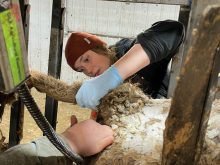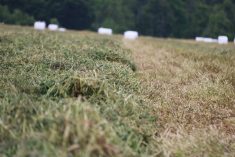CALGARY – He jokingly calls his work “secret squirrel stuff” but Craig Hockley of the fish and game special investigations unit has a serious message.
Buying fish or wild game from a poacher is as wrong as buying a hot compact disc player or a camera. The amazing thing is, most people don’t realize they’re doing anything illegal when they buy some of these products.
“You as the consumer have to be aware of what you’re buying. It’s no different if some guy comes up to you and says, ‘Do you want to buy this stereo’, ” said Hockley. He addressed the annual Rural Crime Watch workshop in Calgary and outlined the various kinds of trafficking in wildlife that goes on in the country and the city.
Read Also

Feds propose overhaul of chronic wasting disease control program
Chronic Wasting disease control program getting updated by Canadian Food Inspection Agency with feedback encouraged from producers.
Slipped onto the market
Most people say they wouldn’t buy wild game but, “It’s surprising how it gets watered into the network,” he said.
For instance, people should be suspicious of door-to-door salesmen selling fish.
Lawful commercial fishermen can sell door to door but must be able to produce their licence.
A raid on an Edmonton restaurant yielded 3,000 pounds of fish for which the owner couldn’t produce sales receipts. He was fined $17,500 which he’s paying off at the rate of $1,000 per month.
Hidden in sausage
A small town butcher bought deer and elk illegally and added the meat to his sausage blends. Until he was caught recently, he was supplying 91 customers in and around Edmonton.
Products may be sold at flea markets, door-to-door sales or businesses where staff and customers buy items like fish or sausage.
Alberta’s Fish and Wildlife special investigations unit started in 1975 and six years later concentrated on catching poachers by infiltrating hunting rings using undercover officers.
“We fill the gap between a uniformed officer and those situations they can’t handle,” said Hockley.
Receiving up to 450-500 complaints a year, they work closely with the RCMP and Canada Customs where they monitor illegal commercialization of wildlife and imports and exports of wildlife parts.















